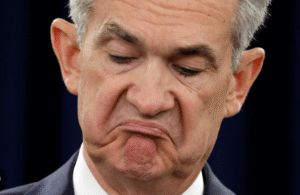$FTSE $GBPUSD $BTC
#UKInflation #BankOfEngland #InterestRates #MonetaryPolicy #InflationData #RateCuts #Economy #FinancialMarkets #CentralBanks #Investing #Forex #Cryptocurrency
UK inflation climbed higher in October, surprising markets with a sharper-than-expected acceleration. This uptick has cemented expectations that the Bank of England will likely keep interest rates elevated for a longer period and postpone any potential rate cuts. The figures intensify concerns about persistent inflationary pressures in the UK, as policymakers face the challenge of balancing economic growth with inflation control. The latest data indicates that the cost-of-living crisis remains acute, potentially delaying any reprieve for households and businesses struggling with elevated borrowing costs.
Market participants had been anticipating a gradual decline in inflation, following recent deceleration in the months prior. However, October’s figures complicated this narrative, reigniting fears that underlying inflation is stickier than initially projected. The unexpected increase significantly impacts market sentiment, as investors adjust to the likelihood of tightening monetary policy persisting well into 2024. The British pound ($GBPUSD) saw mixed performance, initially spiking on the prospect of higher yields but later paring gains as concerns over economic headwinds emerged. Stocks in the FTSE 100 also reflected the uncertainty, with sectors sensitive to interest rates, including real estate and consumer discretionary, underperforming.
The Bank of England, which held rates steady in its most recent meeting, has been walking a tightrope in recent months. On one side, inflation remains well above the 2% target, while on the other, the UK economy shows signs of significant cooling. October’s inflation data tilts the scales, adding pressure on Governor Andrew Bailey and his team to maintain a hawkish stance. This has implications for both domestic and international investors, as UK bond yields are likely to remain elevated, further influencing forex markets, particularly the pound’s performance against major currencies like the US dollar. The ongoing delay in rate cuts may also impact corporate borrowing costs, weighing on business investment and potentially exacerbating the slowdown in economic activity.
For cryptocurrency markets, the delay in conventional monetary policy easing could have a peripheral yet noteworthy impact. A continued high-interest-rate environment generally suppresses speculative assets like Bitcoin ($BTC), as institutional and retail investors opt for more stable returns from fixed-income securities. However, the long-term outlook for digital assets may benefit from inflationary concerns, as some investors view cryptocurrencies as a hedge against persistent price pressures. Meanwhile, UK-based growth stocks and emerging sectors tied to innovation could bear the brunt of prolonged high-interest rates, as the tightening financial conditions reduce risk-taking appetite.







Comments are closed.